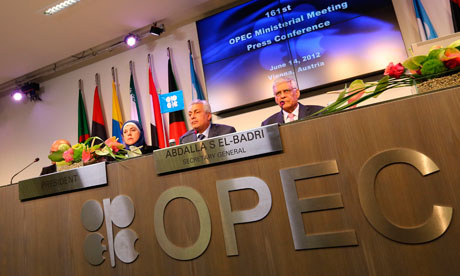The Need for Iran’s Intelligent Approach towards Oil Market Changes

Narsi Ghorban: Urgent OPEC meetings have their own special rules and regulations, and if the conditions are met, an urgent meeting will surely be held. Considering the fact that the OPEC Summit took place just two weeks ago, having an urgent meeting would be something of a rarity, if not unprecedented. Therefore, there must be strong reasons to hold an urgent meeting. A mere fall in oil prices cannot be a convincing reason for OPEC member countries to hold such a meeting.
ID: Iranian oil minister Ghasemi has said that, during the 161st OPEC Meeting, it was decided that any time the price of oil falls below 100 dollars a barrel, we would be in a critical price zone and an urgent meeting could be requested.
NG: If this is true and if a solution was to be found, they would have done so two weeks ago at the OPEC Summit when the price of oil was already below 100 dollars.
ID: Some analysts say that the fall in oil prices is due to some governments not respecting the quotas set for them by OPEC. To what extent is this true?
NG: In my opinion, the fall in oil prices greatly depends on this issue. Although the non-respect of these quotas is not the only reason, it is one of the major ones. OPEC had set its production ceiling at thirty million barrels a day, but it has been producing more than thirty-one million barrels a day for some time now. Therefore, this increase in the production of OPEC and other oil-producing countries is one of the major reasons for the surplus in oil supply in the market and the fall in prices. However, another important reason is the issue of economic recession and the question of whether the US and European economies will be able to move past this recession or not. This issue has a direct effect on the demand for oil.
ID: If we consider the increase in oil supply as an influential factor in the fall of oil prices, how can we ensure that countries respect the quotas set for them by OPEC? The natural result of an increase in production is a decrease in prices. What causes countries to prefer an increase in production to an increase in prices?
NG: Increases in production by oil-producing countries have been made in different conditions by different countries in different periods of time. So this is not something new. This has happened many times in OPEC’s history.
Regarding your second question, I have to say that countries increase or decrease their oil production based on the long-term interests they have defined for themselves. The reasons behind these moves are not only about increasing economic revenues. Political issues might be more important than the economic aspect and have greater influence on their decision-making. Therefore, if we consider that a country's long-term national interests are defined by the country itself and that they are not necessarily economic ones, we can understand why countries continue to increase oil production despite the fall in prices.
ID: Oil sanctions on Iran were set to be enforced on the 1st of July. To what extent do you think this fall in oil prices was a plan to reduce the shock caused by oil sanctions on Iran?
NG: If we consider that the fall in oil prices was planned, we must also consider increases in oil prices as planned as well. This can be discussed if we base our discussion on the fact that the oil market is influenced by political factors and that these factors cause changes in oil prices. However, if we believe that economic factors are influential, we have to consider other factors. I believe that political factors have some influence on the market, but not as much as it has been publicized. The price of oil dramatically increased last Friday. It came down on Monday, and this was a natural decrease because whenever there is a sharp increase in prices, the market somewhat balances itself in the days that follow due to the opportunism of certain individuals, and prices go down. The sanctions on Iran's oil have however influenced prices. But this has existed for some time, and oil sellers and buyers, who make their decisions beforehand, have considered this factor in their calculations.
ID: Will these sanctions have any ramifications in the future?
NG: Other issues might be influential in the future. The starting date for this sanction had been announced and all parties had prepared themselves for its implementation. I'd like to stress a very important point and that is that we need to act wisely and not think that the world will be destroyed without our oil. The world might not even be destroyed without Saudi Arabia's oil. We should not think that we are the world’s oil barycenter.

